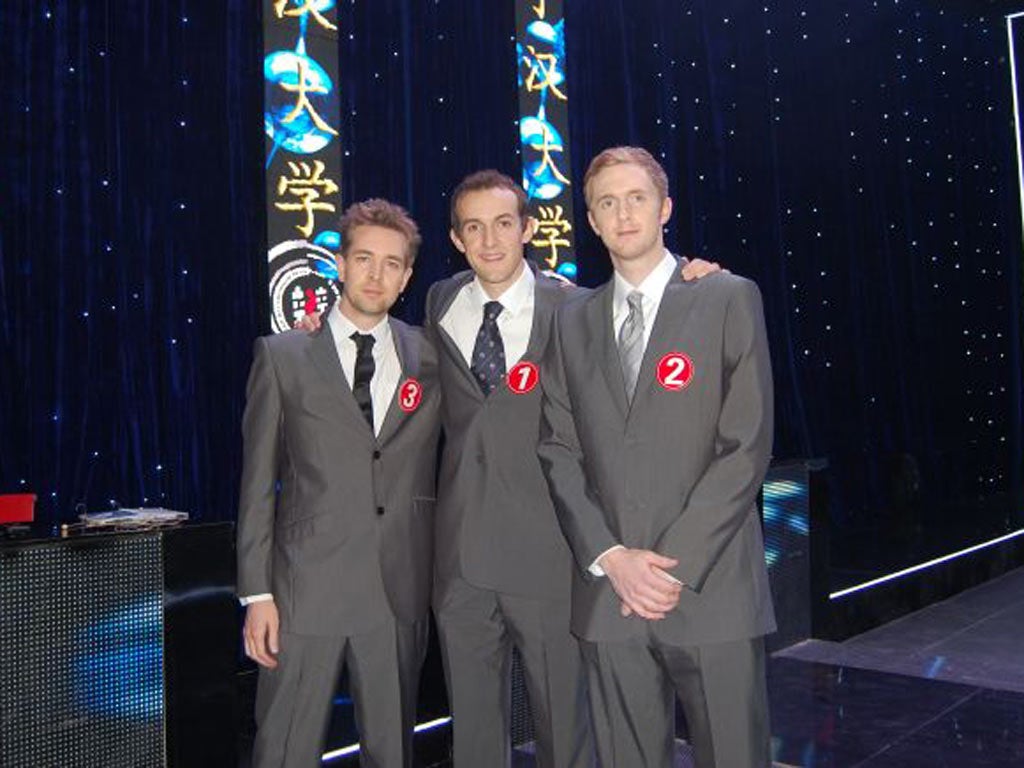Nottingham beats Harvard to be the talk of the town
Win in the International Varsity Debate for the city's university team speaks volumes

Your support helps us to tell the story
From reproductive rights to climate change to Big Tech, The Independent is on the ground when the story is developing. Whether it's investigating the financials of Elon Musk's pro-Trump PAC or producing our latest documentary, 'The A Word', which shines a light on the American women fighting for reproductive rights, we know how important it is to parse out the facts from the messaging.
At such a critical moment in US history, we need reporters on the ground. Your donation allows us to keep sending journalists to speak to both sides of the story.
The Independent is trusted by Americans across the entire political spectrum. And unlike many other quality news outlets, we choose not to lock Americans out of our reporting and analysis with paywalls. We believe quality journalism should be available to everyone, paid for by those who can afford it.
Your support makes all the difference.It is not exactly the kind of existential question likely to be barked out by Jeremy Paxman, but a group of British students have triumphed in China's answer to University Challenge by successfully pondering the eternal riddle: is it better to love or be loved?
Watched by a television audience of one billion, a team from Nottingham University beat Harvard in the prestigious International Varsity Debate, which pits the world's leading institutions against each other. Arguing solely in Mandarin and without a cuddly-toy mascot in sight, the three Britons out-debated their US counterparts during a 75-minute battle of wits.
Graduate interpreter student Peter McSweeney, 29, from Leicester, was named overall best debater. "Knowing how many people were potentially watching was enough to make you nervous," he admitted yesterday.
Also on the team were Ricky Jeavons, 25, and Kenrick Davis, 22, from Nottingham's School of Contemporary Chinese Studies, who jointly argued that it was better to marry someone who loved you rather than vice versa, because it was more likely to lead to lasting happiness.
The biennial debate, which took place in Qingdao, a coastal city in Shandong province, is organised by China's state broadcaster China Central Television. The contest is divided into two groups of native Mandarin- and foreign Chinese-speaking teams.
As well as Harvard, currently ranked second in the world and Alma Mater of Barack Obama and John F Kennedy, among the 16 teams taking part were Princeton, Moscow University, Melbourne and Sheffield University, which won its heat against Chinese scholars from Tel Aviv.
Mr McSweeney, who is currently travelling in Taiwan, said young people looking to learn Chinese should not be put off by the apparent complexity of the language.
"There are certain aspects which are extremely challenging. It is a tonal language so you have to pronounce each syllable in the correct tone. But some aspects are easier than a European language: for example, there are no tenses for the different verbs," he said. "Chinese people are very appreciative if you learn even a few words of their language. It is not like in France, where they might stick their nose up at a mispronunciation."
Mr McSweeney and the Nottingham team were awarded their trophies and a £300 prize at a gala televised ceremony attended by Chinese celebrities. Chinese scholar and writer Yu Qiuyu, the chief judge, praised the debaters.
Join our commenting forum
Join thought-provoking conversations, follow other Independent readers and see their replies
Comments